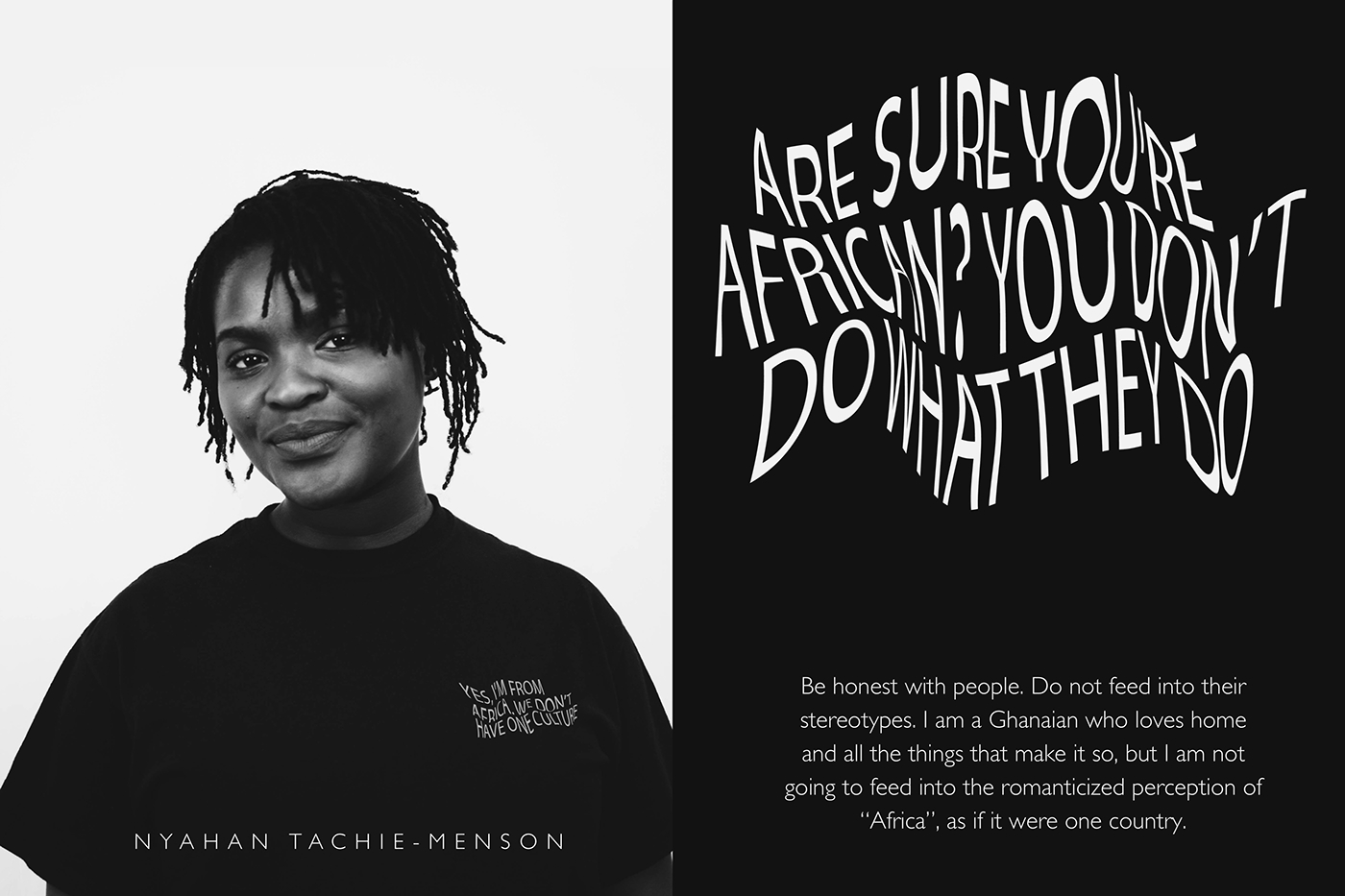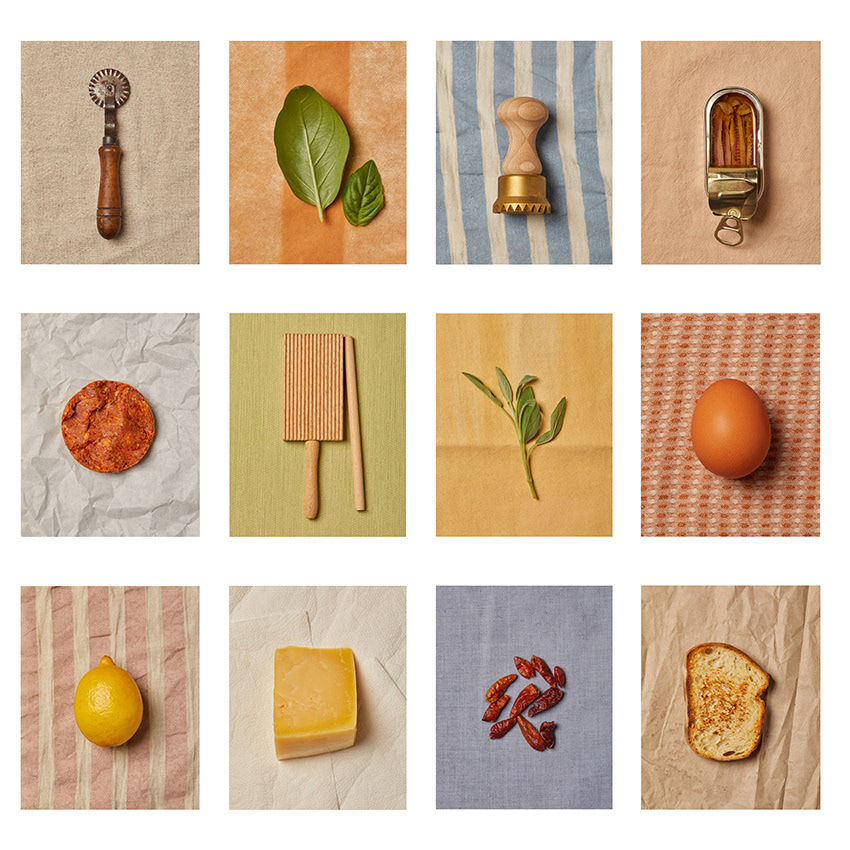1 The term exotic was commonly used in the first decades of the century, but its
meanings were manifold. It most frequently described ‘primitive’ or tribal artifacts
but also referred to modern culture influenced by ancient eastern or African art; it
was applied to art, design, architecture, film, literature and people. Rarely used as
a derogatory term, the ‘exotic’ suggested an exciting, sensual and decorative
vision that carried the dynamics of nineteenth century colonialism to the global
future.
With this in mind I’m exploring the different ways that, through the idea of the exotic
and exoticism in art has affected the way people perceive these places, specifically
Africa, how some stereotypes have come about and how I aim to tackle and address
this issue, along with some contemporary scenarios.
Upon thinking of the whole project and the idea I was trying to carve out by exploring
the idea of the exotic, all I could think of was some present day instances that I
personally experienced, being from Africa, specifically Ghana. How people ask
me some questions that are totally far off from what the reality is back home, how
people assume things that aren’t even close to true sometimes. However, I’ve come to
understand that most times, these preconceptions of what Africa is, usually come about
because of how it has been portrayed through out the years by people who were
fascinated by the idea of the exotic.
People who often try and oversimplify what they had seen back in the numerous
African cultures, and portray it here in the western world as a very simple thing. Putting
a stamp on it as just one huge culture. As many people think of it as one huge country
where we all speak the same language and know each other like we all live in the same
place; and I totally understand how easy it’d be for any one who hasn’t been to a
nation in Africa to think that way, because although the idea of the exotic wasn’t used
as a derogatory term, it portrayed very simplistic views of the somewhat sophisticated
nature of the different African cultures some of these colonialists chanced upon, and
that in itself is in a way derogatory, because it fails to pay some critical detail to what
was. Now, still seen as sort of exotic, I am faced with questions such as “So you’re
from Africa right?”, “You’re in a tribe right?”, “Do you have chiefs and rituals?” “Do you
speak Afrikaans?”etc. questions upon questions which get on the nerves of many of
my peers who are in my position as well. It doesn’t get on my nerves though. I don’t
see that helping people understand your culture any better or get them rightly
informed. For me, within these questions they ask, I rather see an opportunity to give
them more information about where I’m from, because yes, I actually do belong to a
tribe, I’m Ashanti and if you want to know more, I’m always happy to tell you more.
1 Charlotte and Tim Benton, “The Style and the Age,” in Art Deco,1910-1930, edited by
Charlotte Benton, Tim Benton, and Ghislaine Wood (London: V&A, 2003), 12-27.

Initially I felt my site was very abstract, because I couldn’t actually be physically present there. However, after opening up the the Google Spreadsheet and showing my partners what I had been observing as my site, I realized how rich it was. There was practically a lot of cultural traces, literally, because that is essentially what my project focuses on, how through certain assumptions about culture and where you’re from, discrimination can be harnessed. So in a way I was actually able to go to my site in the time allotted, because I feel that, that site is what essentially sets the tone for my whole project. Nothing my partners said in particular, jumped out to me, however the way they reacted when they saw the information I had is what made me also take a step back and review the information I had. Because, although I knew what I had was shocking, I didn’t really step back and view it as someone would if they weren’t doing the project. My focus right now is seeing how I can open up the project a bit more to encompass a few more topics. At the moment I don’t know what my physical observable site is, but, I feel I can say it's people in New York City, because they are the ones mostly filling out the form. I’m really not sure what exactly I’m most interested in researching but I’m very much interested in the whole project.

After receiving over 50 responses, I began to sort out some of the information I received. I sorted them out based on a number of different things, like religion, race and culture. Upon doing this, there were quite a number of things that stood out, like how there were mostly black people who responded and also immigrants.









So after making the shirts and taking the photos of the people wearing their shirts, I ended up creating a book which is meant to be endless, it keeps going on once there are questions or assumptions like these.









I only got the book idea as I continued to work on this project, a way I figured out to make this map stronger is if I made it a continuos one. So showing this through a book I can keep adding on to. A book, specific to a certain geographical location that can be continually added on to.
And what makes it even more unique is the fact that, every book also has a continuing narrative of specifics. Specifics that make the information gathered in that location unique. This narrative can be in the form of a poem or just an ordinary story, written by the people in the book.

This is just one solution to this problem, I'd love to hear solutions you have, if you even see this as an issue and also the different questions you've been asked before, if you ever have been asked, and even if you've asked questions like these. With this, we can create different visual representations of these questions and solutions and help people get an idea of where we're from. If you disagree with what you just read as well, help me understand from your perspective as well, let's make it a conversation.
This project, isn't limited to Africans, it's a conversation that spreads beyond that. There are Africans who also have perceptions of other cultures, based of things they've heard or seen as well. Everyone is involved.
You can join the conversation by commenting below or clicking here.
THANK YOU








